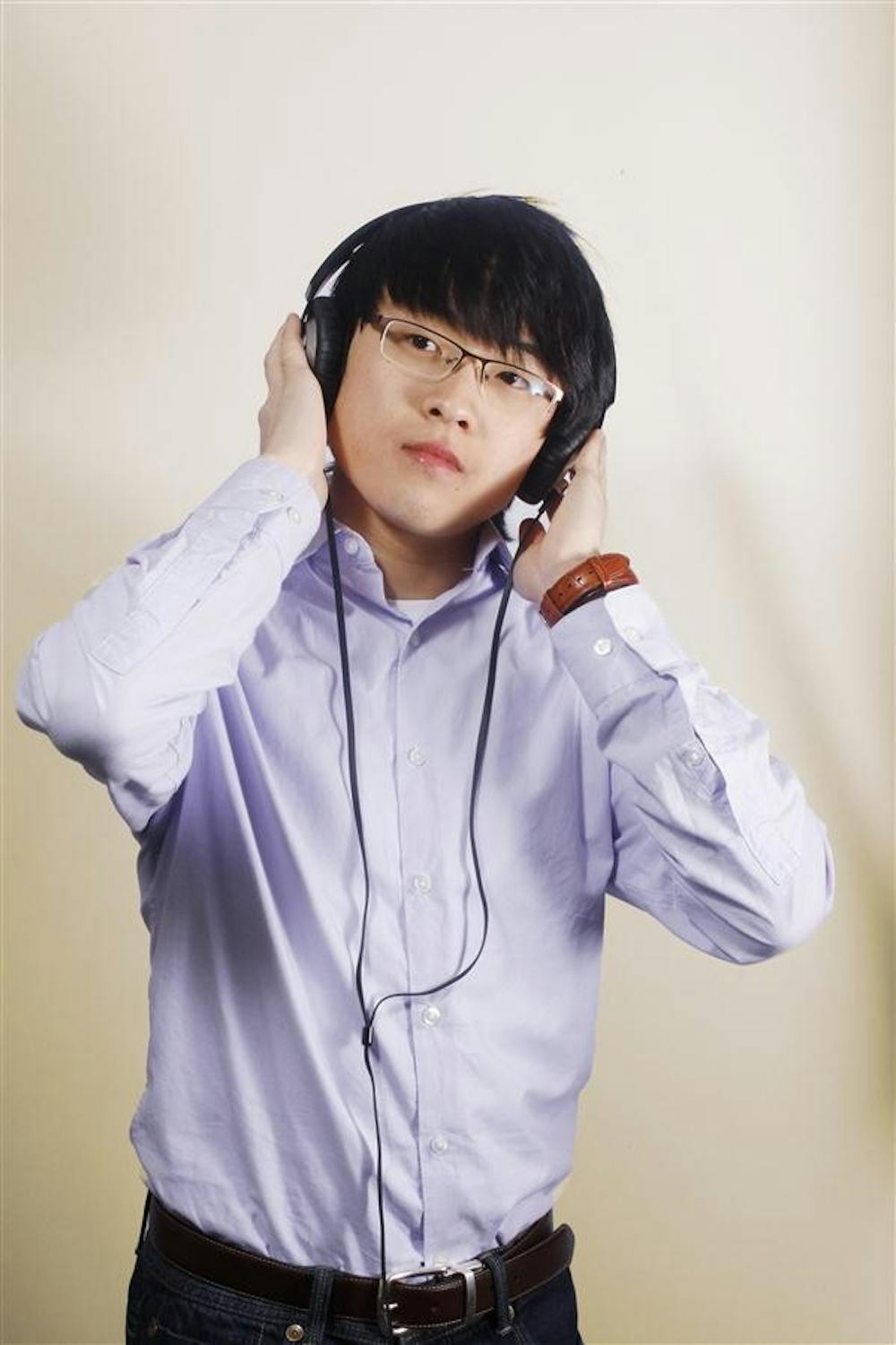When freshman composition major June Lee listens to a song he identifies each note by pitch with ease. He doesn’t have to think about it — it’s a reflex, like someone bopped his knee with a musical hammer. After all, he has perfect pitch.
Define perfect pitch.
I don’t know about other people, but I hear notes as depth-defined pitches. I also know when something’s in tune. I can identify pitches of noise as long as they actually have pitches. Car horns and train horns are easy to identify, but chopsticks banging against the table are difficult.
When did you realize you had perfect pitch?
When I was 13. I was in a music classroom, and I was using the piano to play random songs from cartoons when people asked me how I was able to play that. I thought everyone could do it.
How does having perfect pitch affect your life?
It’s really helpful for me, as a composition major, because I can think of all the pitches I want in my head. I don’t have to go to a piano and play it out to see how it would sound because it’s already there.
Are there any bad things about having perfect pitch?
It messes with your brain. And also, it’s really annoying when people are out of tune.
How do you think your life would be different if you didn’t have perfect pitch?
I don’t think I’d be doing music. I’m not a very good performer, but I do a lot of composing and arranging, which would be so much harder if I didn’t have perfect pitch.
What are some good things about having perfect pitch?
A lot of music teachers like me because I pick stuff up really fast. All these noises that I hear sound like pitches. I’m really fast at being familiar with people because I can remember their voice quickly.






